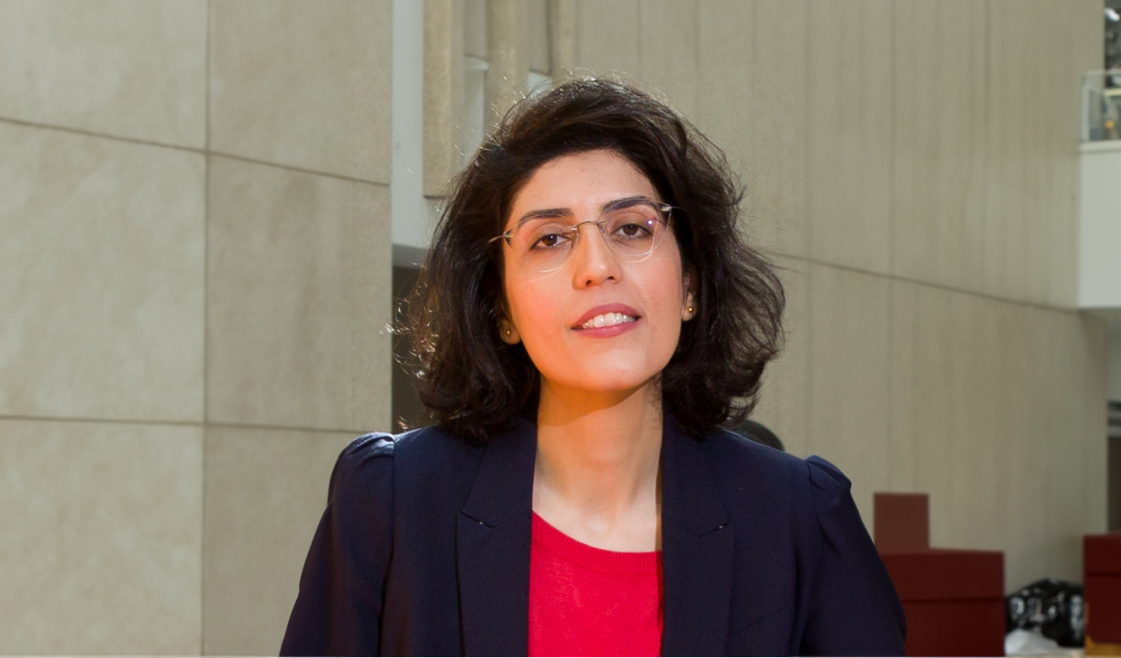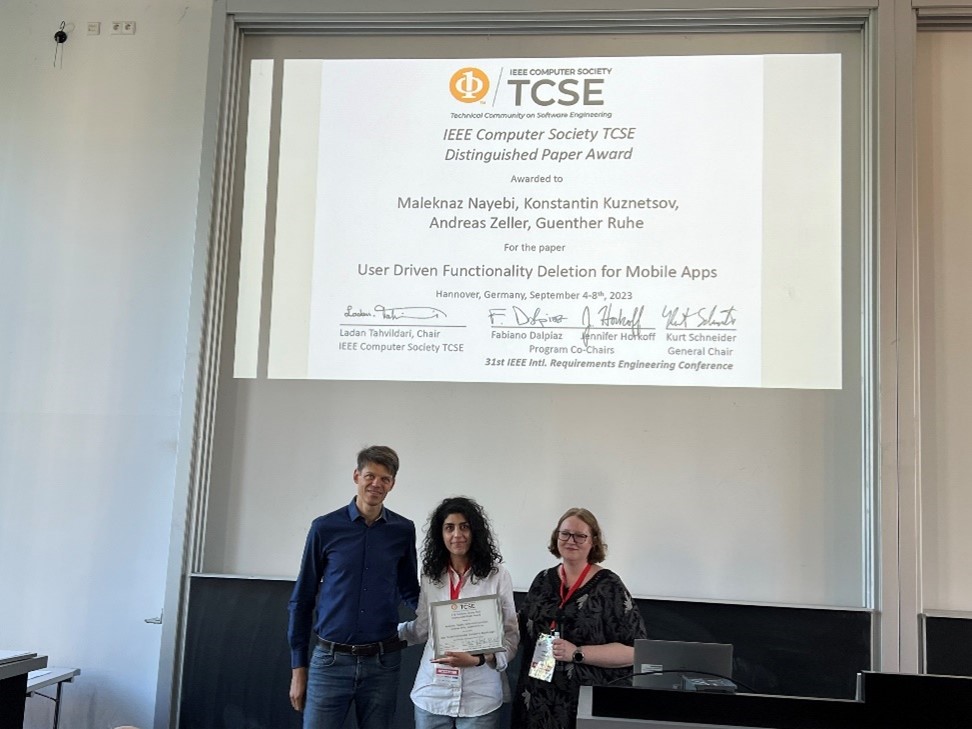Lassonde professor is bending the laws of software engineering to improve app system function and satisfy user preferences
Tags:

Solving the right problem is a corner stone of software engineering and in particular, requirements engineering. Using this principle to guide her work, Maleknaz Nayebi, assistant professor in the Electrical Engineering and Computer Science department at York University’s Lassonde School of Engineering, initiates her research by building a strong understanding of the needs and preferences of software users through techniques such as data mining and population studies – to help develop and improve software applications.
In recognition of her recent work, Professor Nayebi was honoured for her trailblazing research titled, User Driven Functionality Deletion for Mobile Apps, at the 31st Institute of Electrical and Electronics Engineers (IEEE) International Requirements Engineering 2023 Conference. She received a Distinguished Paper Award from the IEEE Technical Community on Software Engineering (TCSE), representing the highest level of technical recognition from the IEEE community within her field.

Professor Nayebi’s work adopts a bold approach to research in her field by challenging conventional laws of software engineering to improve user experience and system function.
“Software products are governed by a law of growth,” she says. “We are told that offering more and adding new features to software applications will help keep customers satisfied.”
This law, known as Lehman’s Law of Growth, has long served as a fundamental principle in software evolution. Professor Nayebi is challenging this rule by presenting compelling empirical evidence that highlights its inaccuracies.
“Our research showed that against Lehman’s Law of Growth and common beliefs, the functionality of software applications and particularly mobile apps can actually decrease overtime. This is why we explored ways to remove unnecessary features without affecting the experience of users.”
Though researchers are beginning to understand the advantages of removing specific features from software applications, the ways in which feature deletions impact users are less understood. To bridge this gap, Professor Nayebi conducted various case studies in collaboration with researchers from the University of Calgary and CISPA Helmholtz Center for Information Security. Information collected from these studies was used to develop RADIATION, a recommendation tool which can help developers identify the best software application features to delete, without affecting user experience.
RADIATION applies ML methods to scan through different software application reviews from users and identify constructive opinions. In this way, RADIATION can evaluate user perspectives regarding different software application features and determine the best options for removal without provoking negative user feelings.
Professor Nayebi’s groundbreaking research has the potential to be applied across many fields and disciplines. She is currently working with various companies that can use feature removal methods to solve issues with emergency management and eHealth software applications, while satisfying the software design preferences of users.